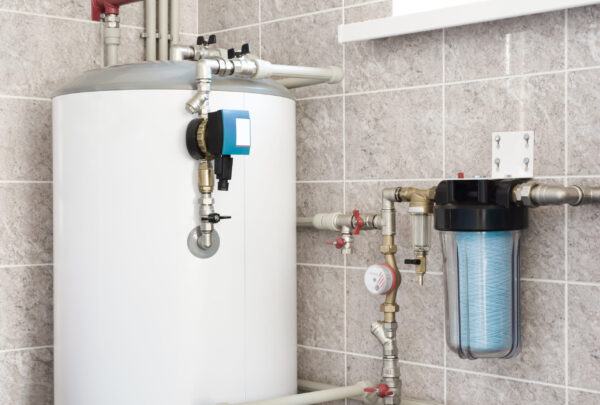
If you’re anything like us, your water heater is an essential part of your home. Your heater provides hot water for showers, dishes, and laundry. However, even today some water heaters are more wasteful than others. So, should you upgrade your water heater?
A poorly running water heater means higher energy bills, inconsistent hot water supply, and more frequent repairs. Understanding the traits of an efficient water heater can help you when it comes time to replace your current unit.
UNDERSTANDING WATER HEATER EFFICIENCY
Water heater efficiency is found by heating a specific amount of water. Then, you can compare how much energy it should use to the actual energy it uses.
A less efficient water heater will end up requiring more energy than a more efficient one does. A more efficient model will use less energy. Saving energy is better for the environment and your wallet.
ENERGY FACTOR (EF) RATING
When comparing water heaters, pay attention to the EF rating stamped on the heater. A higher EF rating indicates a more efficient water heater. The EF rating can help you purchase your ideal heater. Higher ratings usually mean a more expensive, but more efficient heater.
PURCHASE COST VERSUS SAVINGS OVER TIME
Energy-saving heaters often have a higher up-front cost. Even still, they can save you money in the long run through reduced utility bills. Less efficient models may also need more frequent maintenance or replacement. This will only add to the overall cost of ownership.
When choosing a water heater, it’s important to consider your specific needs and usage patterns. Consider the size of your household and the amount of hot water you use daily. Also, consider regional factors such as climate and energy costs.
If your savings over time is greater than your up-front cost, it may be time to upgrade your water heater.
OTHER FACTORS AFFECTING EFFICIENCY
It’s also important to think about the set-up. Consider bad installation, poor placement, not enough insulation, and lack of regular maintenance. All of these will kill your efficiency.
You need a proper install to get the full benefits from your heater. We recommend relying on a professional. Properly insulating your water heater and its pipes can also help stop heat loss and further improve energy use.
MAXIMIZING YOUR WATER HEATER EFFICIENCY
To get the most out of your water heater, it’s important to perform regular maintenance. Let’s take a look at some of the ways you can keep your water heater running smoothly.
CHECK THE TEMPERATURE SETTINGS REGULARLY
One of the most important parts of maintaining your water heater is making sure its settings are correct. This means checking them often and adjusting them as necessary.
Most modern water heaters come with an adjustable thermostat, allowing you to calibrate the temperature of the hot water easily. Generally speaking, keeping the temperature between 120 and 140 degrees Fahrenheit is best. This is the best balance of comfort and energy use.
CHECK FOR LEAKS
Regularly check your water heater for any signs of leakage. Leaks are a serious problem. Check around the base of the unit as well as around any pipes or connections attached to it.
If you do find a leak, make sure to contact a professional immediately. If you don’t, it could lead to further damage and higher repair costs in the long run.
SAVE MONEY AND REDUCE WASTE WITH A HIGH-EFFICIENCY WATER HEATER
Let’s take a look at some of the reasons that it could be worthwhile to upgrade your water heater.
LOWER ENERGY BILLS
The main benefit of installing a high-efficiency water heater is that it can greatly lower your energy bills. A standard water heater has a rating of around 55%. This means that almost half of the energy used ends up as heat waste. High-efficiency models operate with an efficiency rating of up to 96%, which means they waste much less energy.
COST SAVINGS
The lower operating costs associated with high-efficiency water heaters can be a huge benefit over time. These savings can be substantial, sometimes amounting to hundreds of dollars every year. Because these units last longer than traditional ones, they usually pay off even more in the long run.
Plus, many utility companies offer rebates for purchasing energy-saving units. This can make them even more affordable.
COMFORT LEVEL
High-efficiency water heaters also provide hot water faster than traditional models! These heaters often have special temperature controls. These controls help keep the temperature of your hot water consistent. No more sudden cold shocks while you’re using hot water.
CALL PROFESSIONALS TODAY!
At Gallagher’s Plumbing, Heating and Air Conditioning, we specialize in providing top-quality air conditioning, plumbing, and heating services. We proudly serve all of the Greater Sacramento area.
We strive to serve their needs with prompt, efficient, effective, and reasonably priced service. Contact us at Gallagher’s Plumbing, Heating and Air Conditioning today to learn more about our options.


 uys
uys